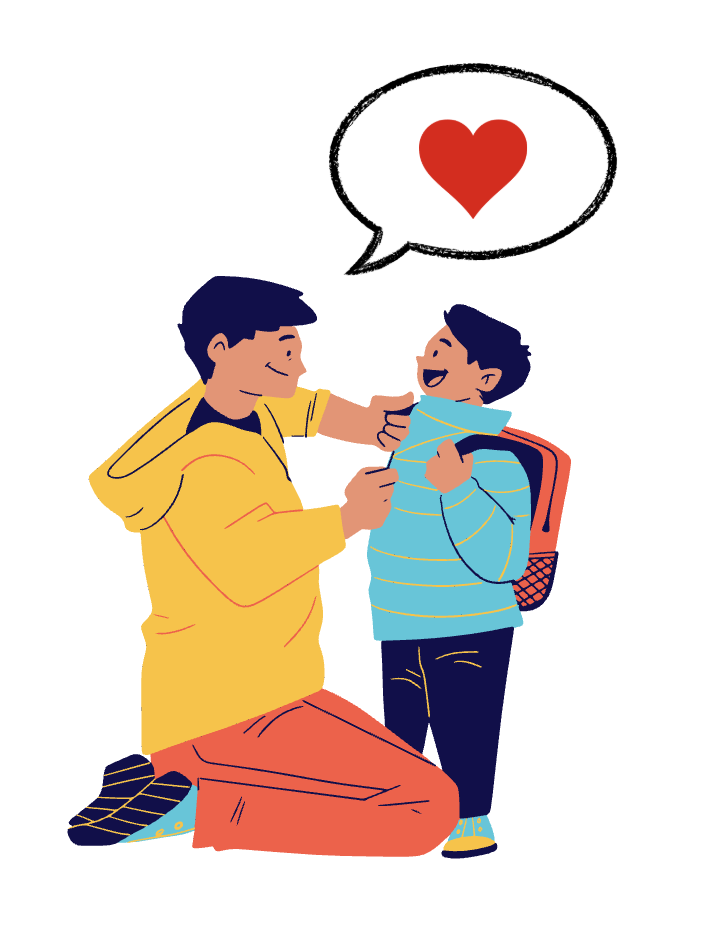
Our library of knowledge and resources are here to support you.
What is the difference between Neurodiversity versus Neurodivergence?
Neurodiversity describes the differences and natural variations in how an individual’s brain learns, processes information, and experiences the world around them (Baumer & Frueh, 2021). There is a spectrum of neurological, cognitive, and behavioral differences. These differences are not perceived as deficits, but rather unique ways to process.
Neurodivergence describes how an individual’s brain functions, learns, and processes information differently compared to those considered neurotypical. These differences may include variations in an individual’s attention, learning style, problem-solving abilities, emotions, sensory processing, social cues, and more.
Individuals part of the neurodivergent community commonly include: Autism Spectrum Disorder (ASD), Attention Deficit Hyperactivity Disorder, Dyslexia, Dyspraxia, Sensory Processing Disorder (SPD), Tourette’s Syndrome, and more.
What does it mean to be Neurodiversity affirming?
Neurodiversity affirming is a strengths-based approach that embraces and celebrates the natural variations and differences in brain functions among individuals. Rather than forcing individuals to fit into a neurotypical mold, the focus is on supporting individuals to understand their unique strengths and empowering them to advocate for their needs.
Autistic individuals do not need to be cured. Each Autistic individual experiences the world around them in a multitude of ways. Instead of asking “What is wrong with them? How can I cure them?”, we need to ask “What can I do or change about the environment to best support them?”. It is imperative to create more inclusive and supportive environments for Autistic individuals.
What does it mean to presume competence?
To presume competence is to assume that an individual is highly capable of and has the abilities to understand, think, and learn even if there is no immediate evidence.
Oftentimes, some individuals have the mentality of “show me” or “prove it".” Adopting this mentality can negatively impact an Autistic child’s self-efficacy or confidence and greatly hinder their abilities to demonstrate their capabilities. Rather, it is more supportive and effective to encourage the child and presume competence with affirmations such as “I believe in you. You can do this, I know you can.” By presuming competence, Autistic children will feel heard, understood, and supported. They will surpass your expectations of what they are capable of!
Navigating Barriers to Accessible Care
What is an underserved community?
Underserved communities are defined as groups of people that have little to no access of services and or resources that are accessible and affordable (Stahmer et al., 2019), where low socioeconomic status, lower education, lack of time, and the priority of fulfilling basic needs can limit the drive to obtain more knowledge and information on Autism to better support the development of their children (Miller et al., 2021).
In the United States, there are many families in underserved communities that experience barriers to accessing resources, programs, and services to better support their Autistic children in their development (Stahmer et al., 2019). These families can potentially be limited by geographic, economic, educational, cultural, and literacy disparities (otherwise known as social determinants of health).
3 Major Barriers to Accessible Care
1
Lack of Resources
Families may be limited due to environmental restrictions (ex: living in a rural area), no health insurance, and more.
2
Language Barriers
Non-English speaking families or families where English is not their first language may not fully understand Autism as a diagnosis.
3
Low Health Literacy
Families may be limited due to low literacy or illiteracy. Understanding complex medical terms adds another layer of difficulty.

Our Why.
Growing up as a child of immigrants in the United States, there were many experiences in life when language was a barrier. As a result of hard laborious jobs, my family’s health took a toll. For countless doctors’ appointments, hospital stays, and surgical procedures, my family relied on my cousins and I to translate as medical terminology was difficult to understand. Family is an integral part of our culture…but I had a thought one day. Not all families are willing to take the time and make the effort to translate, and not all families had the luxury to. What happens to those families? Who is there to support them? They deserve support too.
During my journey as a future occupational therapist, I had the opportunity to work closely with a family as an interpreter under the supervision of a licensed occupational therapist. Witnessing this family experience comfort and security throughout the process of navigating their child’s Autism diagnosis partly due to sharing the same language as me, gave me a sense of purpose. I felt so fulfilled. This personal experience further fueled my passion to aid underserved families in accessing the healthcare that they rightfully deserve.





